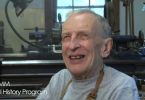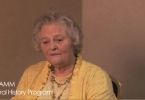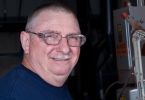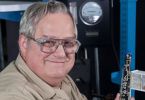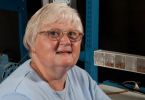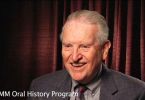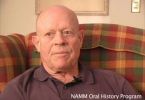Double Reed Instruments
Alan Fox’s father played in the symphony orchestra in Fort Wayne, Indiana before being drafted for service in World War I. After the war, he began making reeds and in 1923 joined the Chicago Symphony as the bassoonist. He formed Fox Music, making bassoons, in 1949 and ten years later Alan, who was...
Mark Kortschot is a Professor of Engineering at the University of Toronto who was approached by Guy Légère with an interesting idea in 1997. Guy wanted to make a synthetic reed for the clarinet from oriented polymers, but needed some help obtaining and working with these high-tech materials. Mark...
Paul Laubin followed in his father's footsteps both as a symphonic oboist and as an instrument maker. Alfred Laubin made his first oboe in 1931. He steadily improved his design, and went on to make hundreds of instruments and grow A. Laubin, Inc. into a full-time business. Paul grew up in the...
Gail Warnaar started a double reed camp for high school band students in the Michigan area, which lead to her involvement with the music products industry. In 1981 Gail formed the Double Reed Shop to provide accessories to her camp students, but soon the business grew as did her need to expand. ...
Jonathan Montel has worked on the bench in the factory at Selmer in Elkhart for over 40 years! He has worked in many positions during his career with a special concentration on oboes, clarinets and bassoons. He has also seen many changes to the process of instrument making, including the first...
John Crise began his career in the music industry with Selmer in 1975. He has focused his work on the oboe, clarinet and bassoon in the years before the CNC machines came to the company. Even after that time John has used his skills as a craftsman to provide the detail work and adjustments...
Bernice Pelmear began working in the Selmer factory in Elkhart, Indiana in 1973. She was trained by veteran co-workers, a tradition she carried on as a trainer years later. Her work focused on assembling oboes and bassoons and continued on after the merge with Conn.
Wendal Jones began playing double reed instruments as a child in grade school. He switched to saxophone for a time to play in a number of dance bands in the Colorado area. After college, where he studied music, Wendal became a band director. While working in Arizona, he started to make his own...
R. Thomas Lockie’s grandfather started a small music store in downtown Los Angeles in the 1920s. The store was later owned and operated by Tom’s father who played “keep the store in business” during the Great Depression. Tom’s father was a movie studio musician who specialized in playing the piano...


